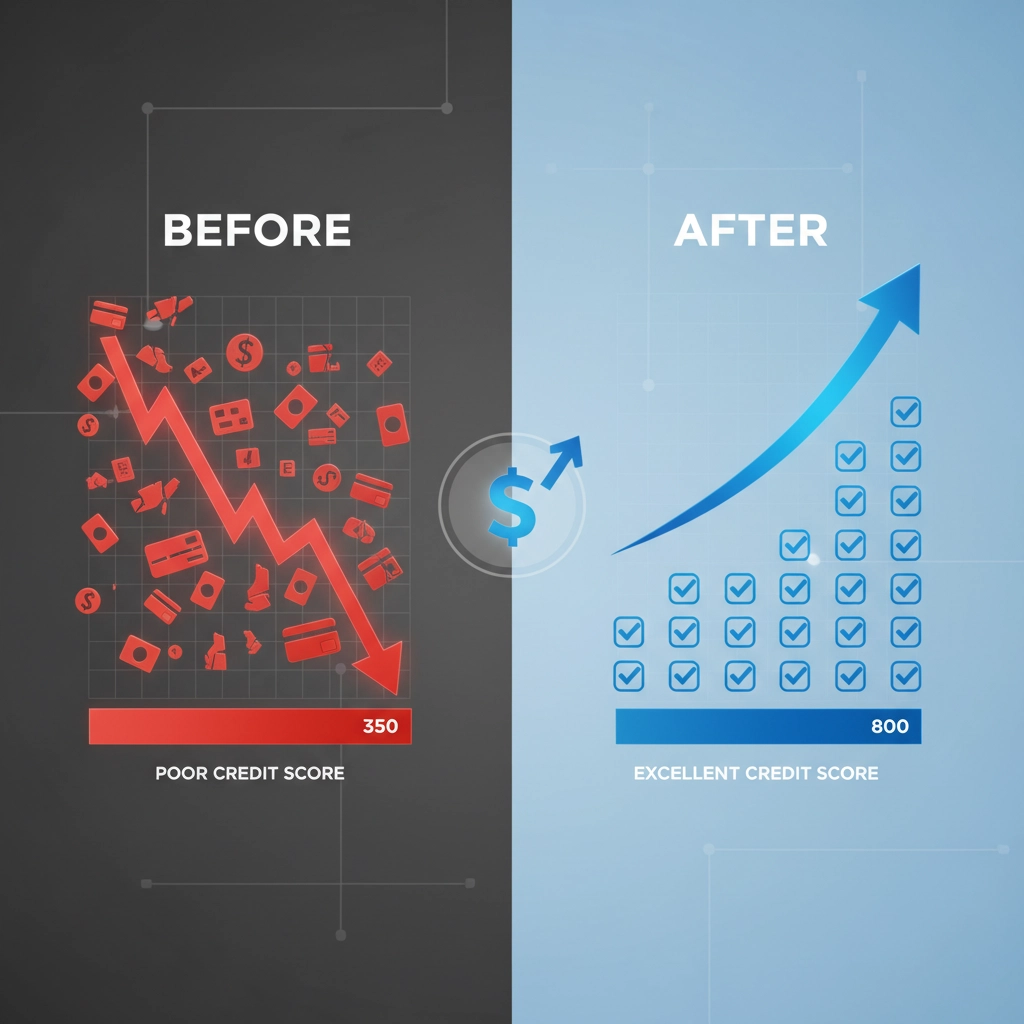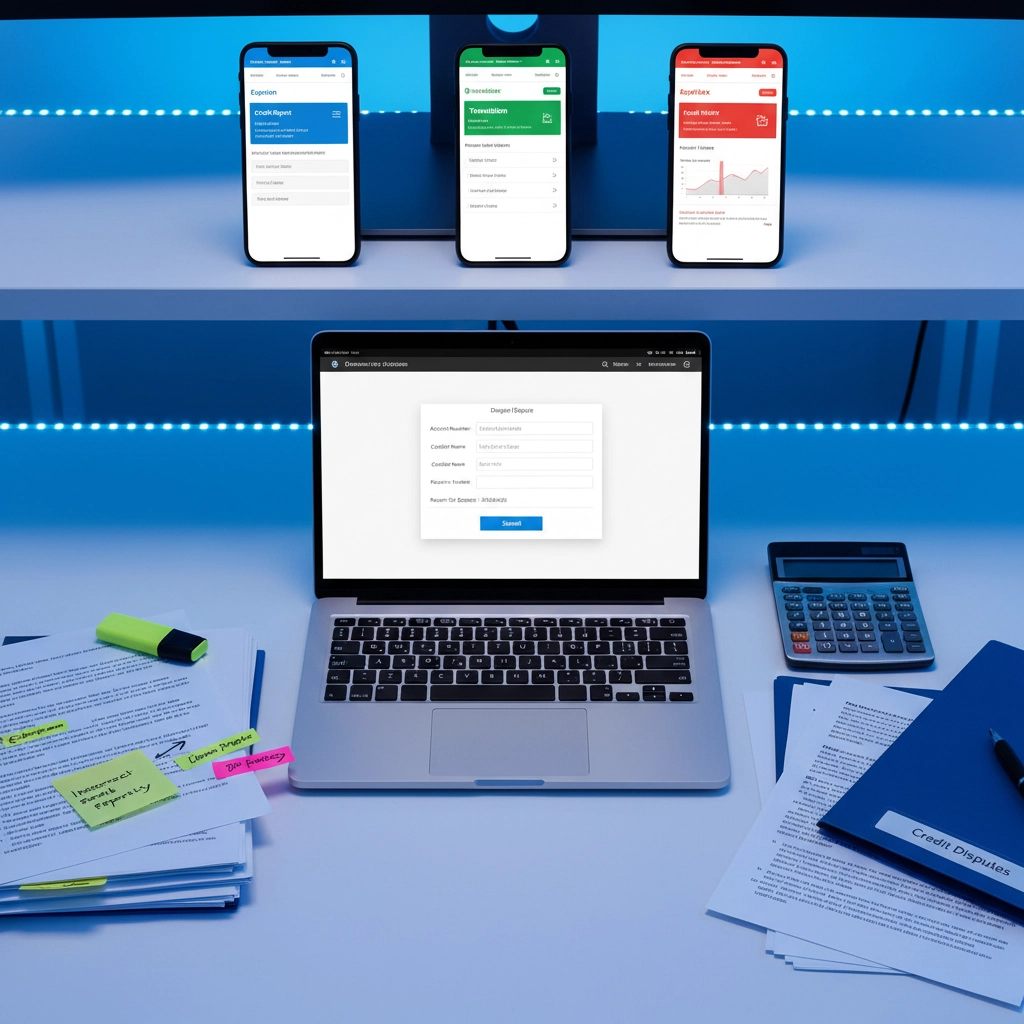Missed Payments Ruining Your Credit? Here's How to Dispute and Recover in 60 Days

Got slapped with a late payment on your credit report? You're not alone, and you're definitely not powerless. That single missed payment might have dropped your credit score by 50 to 100 points, but here's the thing – you can take control of this situation and start turning things around within 60 days.
Payment history makes up 35% of your FICO score, so when a late payment hits your report, it hits hard. But before you panic, let's talk about what you can actually do about it. Some late payments can be disputed and removed, while others need a different strategy. Either way, you've got options.
The Real Impact of Late Payments (And Why You Need to Act Fast)
Let's get real about what's happening to your credit right now. That late payment isn't just sitting there doing nothing – it's actively dragging down your score every day it remains on your report. The damage is especially brutal if you previously had good credit, because the scoring models penalize people harder when they fall from grace.
Here's what makes this particularly frustrating: the impact isn't just about the points you've lost. That lower score is now affecting your ability to get approved for credit cards, loans, and even apartments. Plus, when you do get approved, you're paying higher interest rates that can cost you thousands over time.
But here's the good news – the sooner you act, the better your chances of minimizing the damage. Some late payments can be completely removed if they're inaccurate, and even legitimate ones can sometimes be negotiated away.

Your Rights: What You Can (and Can't) Dispute
Before we dive into action steps, you need to understand your rights under the Fair Credit Reporting Act (FCRA). You have the legal right to dispute any inaccurate information on your credit reports – completely free of charge.
The key word here is "inaccurate." If you actually made that payment late, you can't just dispute it hoping it'll disappear. But if there's any error in how it's being reported – wrong date, wrong amount, payment that was actually on time – you can absolutely challenge it.
Common scenarios where late payments can be successfully disputed:
- You made the payment on time, but it was processed late by the creditor
- The payment was applied to the wrong account
- You were never notified about a missed payment
- The dates are incorrect on your credit report
- You have proof of payment that contradicts the late payment report
Remember, creditors and credit bureaus must prove that the information they're reporting is accurate. If they can't, they're required to remove it.
Days 1-15: Gather Your Evidence and Launch Your Disputes
Time to become a detective in your own credit case. Start by pulling your credit reports from all three bureaus – Experian, Equifax, and TransUnion. You can get these free at annualcreditreport.com, and you'll want to check all three because they might have different information.
Look at every late payment with a magnifying glass. Check the dates, amounts, and account numbers. Then dig into your own records – bank statements, payment confirmations, emails, anything that shows when and how much you paid.
Found an inaccurate late payment? Here's your game plan:
Contact the creditor first. This is often faster than going through the credit bureaus. Call their customer service line and ask to speak with someone in their credit reporting department. Explain the error clearly and ask them to investigate. Follow up with a written dispute letter that includes copies (never originals) of your supporting documents.
Dispute with the credit bureaus simultaneously. Don't wait for the creditor's response – file disputes with all three credit bureaus right away. Most have online dispute systems that are pretty user-friendly. Upload your documentation and be specific about what's wrong and what you want corrected.

Days 15-30: The Goodwill Letter Strategy
While your disputes are being investigated, it's time to try a different approach for any late payments that are technically accurate. Enter the goodwill letter – your chance to appeal to human decency and customer loyalty.
A goodwill letter is exactly what it sounds like – a polite request asking your creditor to remove a late payment as a gesture of goodwill. This works best if you have an otherwise solid payment history and can explain the circumstances that led to the missed payment.
Your goodwill letter should include:
- An acknowledgment that the payment was indeed late
- An explanation of what caused the missed payment (job loss, medical emergency, etc.)
- Emphasis on your overall positive relationship with the creditor
- A clear request to remove the late payment as a courtesy
- Your commitment to continued on-time payments
Some creditors are more receptive to goodwill requests than others. Credit unions and smaller banks tend to be more flexible than major national banks, but it's worth trying regardless of who your creditor is.
Days 30-45: Follow Up and Negotiate
By now, you should start hearing back about your disputes. Credit bureaus typically have 30 days to investigate, though they often respond sooner. Check your credit reports regularly to see if any changes have been made.
If your disputes were unsuccessful but you still believe the late payments are wrong, don't give up. Contact the creditor again and ask to speak with a supervisor. Sometimes the first person you talk to doesn't have the authority or knowledge to help you properly.
This is also when you might consider a "pay-for-delete" negotiation. If you have any outstanding balance on the account, you can offer to pay it in full in exchange for removing the late payment from your credit report. Not all creditors will agree to this, but it's worth asking.
When negotiating pay-for-delete:
- Get any agreement in writing before you pay
- Be prepared to pay the full amount immediately
- Don't admit fault – frame it as a business arrangement
- Be persistent but polite

Days 45-60: Building Positive Momentum
Whether your disputes were successful or not, the final phase of your 60-day recovery plan focuses on building positive credit history. This is crucial because even if you can't remove every late payment, you can start offsetting their impact with perfect payment behavior.
Set up automatic payments for at least the minimum amount due on all your accounts. Yes, all of them – credit cards, loans, utilities, everything. You cannot afford another late payment right now.
If you have accounts that are currently past due, make bringing them current your top priority. Each additional month an account remains delinquent causes more damage to your credit score. Contact your creditors to discuss payment plans or hardship programs if needed.
Consider becoming an authorized user on someone else's account if they have excellent credit. This can add positive payment history to your credit file relatively quickly.
Managing Your Expectations: What's Realistic in 60 Days
Let's talk real expectations here. If your disputes are successful and inaccurate late payments get removed, you could see significant improvement in your credit score within 60 days. We're talking potentially 50-100 points if the late payment was the main negative item on your report.
But if the late payments were accurately reported and can't be removed, 60 days isn't enough time for dramatic score improvements. What you can accomplish is stopping the bleeding and starting the healing process. Every on-time payment you make during this period is an investment in your future credit score.
The impact of late payments diminishes over time, especially as you build a pattern of positive behavior. A late payment from two years ago hurts less than one from two months ago. So even if you can't get everything removed immediately, consistency over the next several months will pay off.
Your Next Steps: Taking Control of Your Credit Recovery
Here's the bottom line – you have more power over your credit situation than you might think. Between dispute rights, goodwill letters, and strategic credit building, there are concrete steps you can take to start improving your credit within 60 days.
The key is taking action now, not next month or when you "have time." Every day that passes with inaccurate information on your credit report is a day of unnecessary damage to your financial future.
Start with pulling those credit reports today. Review every late payment with a critical eye. Challenge anything that doesn't look right, and don't be afraid to ask creditors for help. Remember, the worst they can say is no, but they might surprise you and say yes.
Your credit score doesn't define you, but taking control of it definitely shows your commitment to your financial future. Those 60 days start now – make them count.
#CreditRepair #CreditDispute #FixMyCredit #LatePayments
